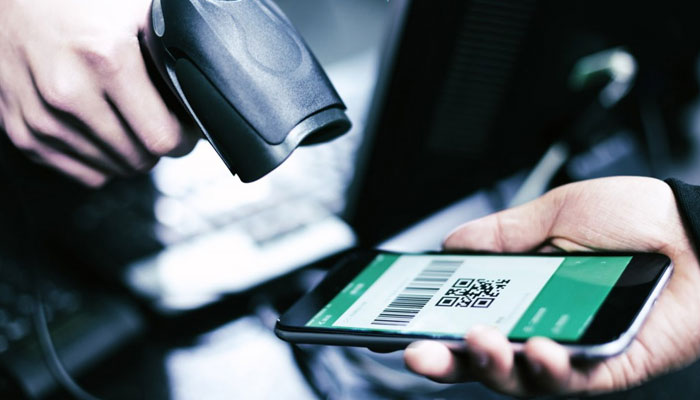Economic digitalisation
LAHORE: Digital payments are now common in Pakistan, as consumers pay their grocery bills, pharmacy bills, and fast food bills through online banking. However, services that avoid taxes insist on cash instead of digital transfers.
This fact is known to all those that matter and are proponents of documentation. For instance, doctors do not accept payment through digital transfer of any kind. A doctor charges Rs350,000 for inserting a stent in a blocked vein in the heart. The price of the stent would be charged separately by the doctor. The doctor would charge separately an amount that may vary from Rs75,000 to Rs200,000 depending on the reputation the doctor enjoys in the market.
All payments must be made in cash as they do not accept online transfers which are quick and spare the hassle of counting the cash. They do this probably to conceal their actual income. In their official books, they may declare to have done one operation instead of four. The fee charged and the cost of the stent would also be of reduced value. You go to an eye specialist for a cataract operation. He will charge his fee in advance, ranging from Rs25,000 to Rs100,000, plus the cost of the lens which the doctor supplies and the price charged would range from Rs100,000 to Rs250,000 for the same branded lens, meaning money can also be made in the sale of lenses. This applies to all other specialist doctors.
There are hospitals in all major and small cities that are extremely expensive. In some hospitals, the room charges are equivalent to those of five- or four-star hotels. The operation theatre charges are enormous, and then there are miscellaneous expenses. Hospitals also shun digital payments. They want cash. Hospitals pay the doctors their actual charges agreed with the patient, but in their books, they enter what each doctor enters in his/her book.
There are other professions like lawyers, engineers, and beauty salons that adopt the same practice. Our planners say that imposing sales tax on them would be a burden on the consumers. The main intent of sales tax is to document the actual income. But since most services come under provinces, they have not imposed sales tax on many services. And for the service where they charge sales tax, its details are not shared with FBR.
Now, with available technology, the gross income can also be calculated if all payments were made digitally. For those that cannot pay digitally or prefer cash, they should be given a digital receipt through the Point of Sale (POS) system, like the ones installed at retail stores, with the condition that the CNIC of the patient is added in the receipt.
We must encourage digital transactions to document the economy. Technology is available, and access to all digital transactions through CNIC should be available in NADRA and FBR. The revenue increase would more than double if only 50 percent of payments are digitized.
The collection of taxes would depend on the competence of FBR. If NADRA is kept in the loop, it could send a three-monthly report to the prime minister on the compliance status. The erring FBR staff should be shown the door.
Another factor discouraging the digitalization of financial transactions is that the banks have set a maximum limit that a depositor could make in a day. This is ridiculous; the limit should be linked to the availability of balance in the depositor's account. Many air travelers, for instance, are denied concessions granted on the purchase of international tickets if payment is made digitally.
-
 Record Set Straight On King Charles’ Reason For Financially Supporting Andrew And Not Harry
Record Set Straight On King Charles’ Reason For Financially Supporting Andrew And Not Harry -
 Michael Douglas Breaks Silence On Jack Nicholson's Constant Teasing
Michael Douglas Breaks Silence On Jack Nicholson's Constant Teasing -
 How Prince Edward Was ‘bullied’ By Brother Andrew Mountbatten Windsor
How Prince Edward Was ‘bullied’ By Brother Andrew Mountbatten Windsor -
 'Kryptonite' Singer Brad Arnold Loses Battle With Cancer
'Kryptonite' Singer Brad Arnold Loses Battle With Cancer -
 Gabourey Sidibe Gets Candid About Balancing Motherhood And Career
Gabourey Sidibe Gets Candid About Balancing Motherhood And Career -
 Katherine Schwarzenegger Shares Sweet Detail From Early Romance Days With Chris Pratt
Katherine Schwarzenegger Shares Sweet Detail From Early Romance Days With Chris Pratt -
 Jennifer Hudson Gets Candid About Kelly Clarkson Calling It Day From Her Show
Jennifer Hudson Gets Candid About Kelly Clarkson Calling It Day From Her Show -
 Princess Diana, Sarah Ferguson Intense Rivalry Laid Bare
Princess Diana, Sarah Ferguson Intense Rivalry Laid Bare -
 Shamed Andrew Was With Jeffrey Epstein Night Of Virginia Giuffre Assault
Shamed Andrew Was With Jeffrey Epstein Night Of Virginia Giuffre Assault -
 Shamed Andrew’s Finances Predicted As King ‘will Not Leave Him Alone’
Shamed Andrew’s Finances Predicted As King ‘will Not Leave Him Alone’ -
 Expert Reveals Sarah Ferguson’s Tendencies After Reckless Behavior Over Eugenie ‘comes Home To Roost’
Expert Reveals Sarah Ferguson’s Tendencies After Reckless Behavior Over Eugenie ‘comes Home To Roost’ -
 Bad Bunny Faces Major Rumour About Personal Life Ahead Of Super Bowl Performance
Bad Bunny Faces Major Rumour About Personal Life Ahead Of Super Bowl Performance -
 Sarah Ferguson’s Links To Jeffrey Epstein Get More Entangled As Expert Talks Of A Testimony Call
Sarah Ferguson’s Links To Jeffrey Epstein Get More Entangled As Expert Talks Of A Testimony Call -
 France Opens Probe Against Former Minister Lang After Epstein File Dump
France Opens Probe Against Former Minister Lang After Epstein File Dump -
 Last Part Of Lil Jon Statement On Son's Death Melts Hearts, Police Suggest Mental Health Issues
Last Part Of Lil Jon Statement On Son's Death Melts Hearts, Police Suggest Mental Health Issues -
 Leonardo DiCaprio's Girlfriend Vittoria Ceretti Given 'greatest Honor Of Her Life'
Leonardo DiCaprio's Girlfriend Vittoria Ceretti Given 'greatest Honor Of Her Life'




